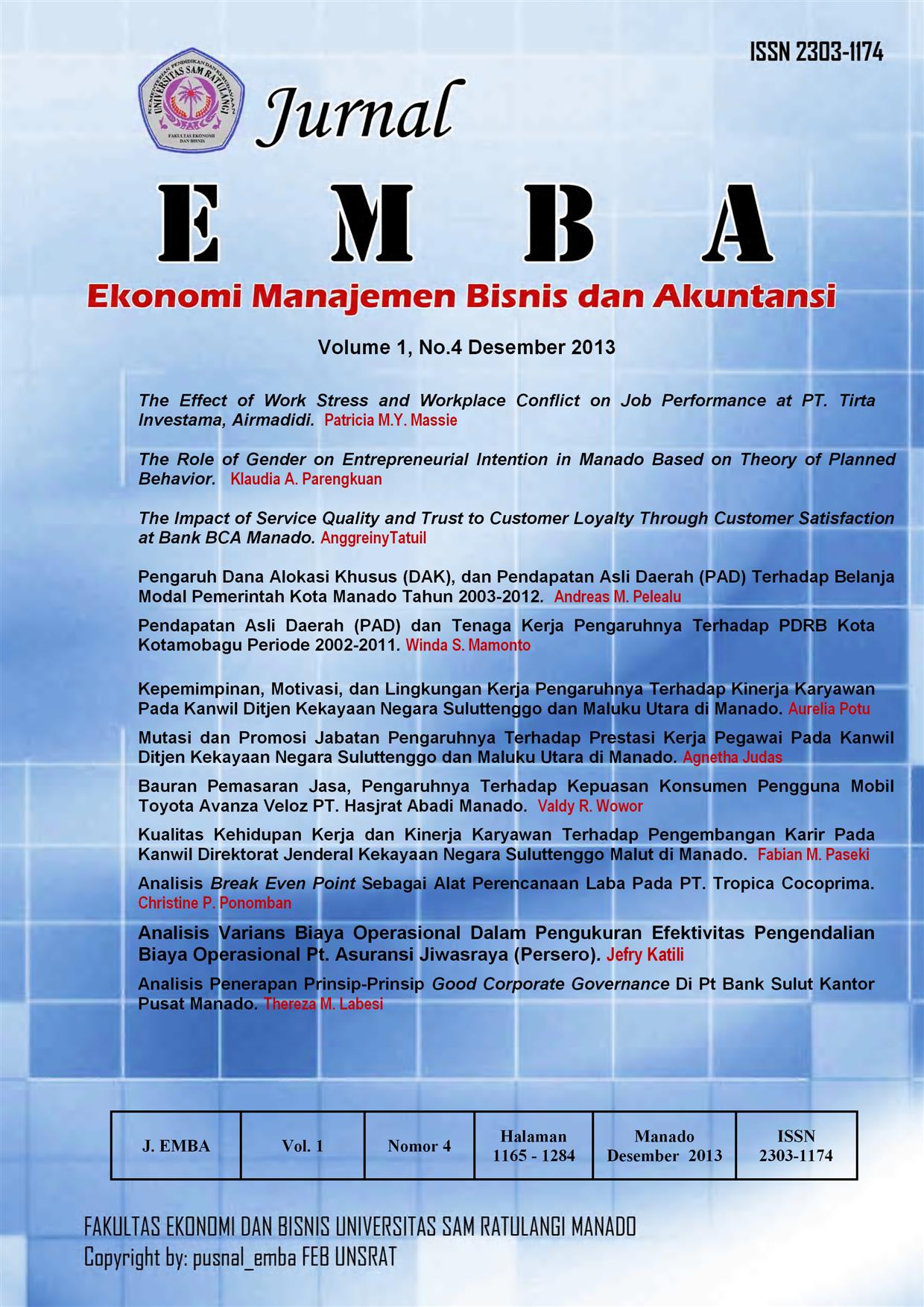THE ROLE OF GENDER ON ENTREPRENEURIAL INTENTION IN MANADO BASED ON THEORY OF PLANNED BEHAVIOR
DOI:
https://doi.org/10.35794/emba.1.4.2013.2890Abstract
Entrepreneurship has become popular since a very long time ago many people with a creative way of thinking start to move from being an employee to start their own business. Those who want to be financially independent will think that the best way to get what they want is to become an entrepreneur. The objectives of this research are to analyze the significant difference in Entrepreneurial Intention based on Personal Attitude, Subjective Norms, and Perceived Behavioral Control between male and female in Manado. The independent-samples t-test evaluates the difference between the means of two independent or unrelated groups. With an independent-samples t-test, each case must have scores on two variables. The grouping variable divides cases into two mutually exclusive groups or categories, such as male or female for the grouping variable gender, while the test variable describes each case on some quantitative dimension such as test performance. The population is all people  with sampel of research is 100 respondents in Manado. The conclusions are there a significant difference in entrepreneurial difference based on personal attitude, subjective norms, and perceived behavioral control.  Based on the results of the study, male is the more dominant to personal attitude, subjective norms, and perceived behavioral control. Then the government can push through entrepreneurial intention for female support for women empowerment, women entrepreneurship club, etc.
Keywords: entrepreneurial intention, planned behaviour

